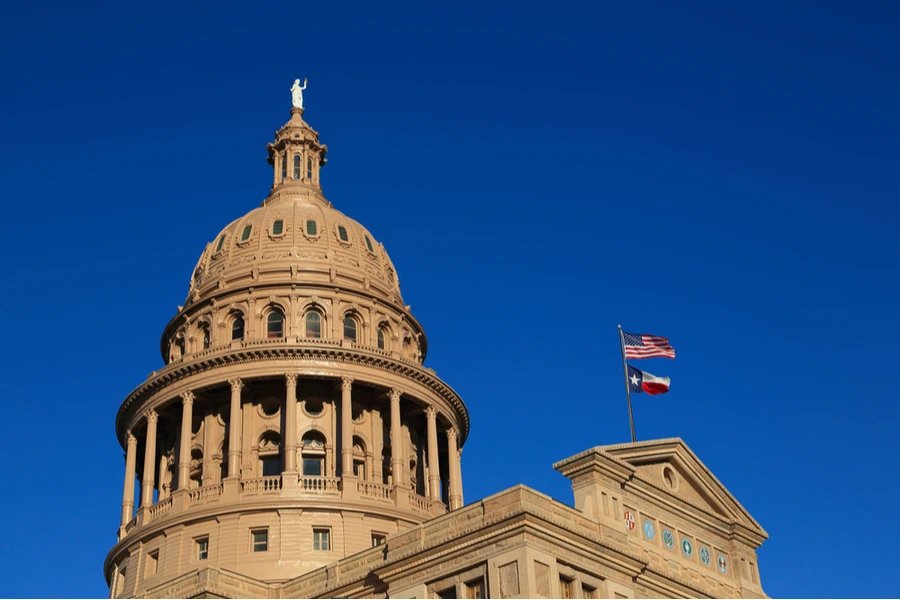CNA Staff, Jun 9, 2025 /
16:06 pm
A federal judge has overturned the long-standing “Texas Dream Act” in a move the state’s Catholic bishops say undermines “just” immigration reform efforts.
After the U.S. Department of Justice sued the state of Texas over the matter last week, U.S. District Judge Reed O’Connor blocked the law, which had enabled some noncitizens living illegally in Texas to qualify for in-state tuition at the state’s public universities and colleges.
Reed ruled that the law was “unconstitutional and invalid” because it applied to those who were “not lawfully present in the United States.”
Enacted in 2001, the law made in-state tuition available for noncitizen students who graduated from a local high school and had lived in Texas for at least three years prior to graduation, including those who weren’t in the country legally. The law required that students pledge to apply for permanent residency at the earliest opportunity.
Most public colleges across the U.S. offer more affordable in-state tuition for students who have lived in that state for a certain length of time, as their families have paid tax dollars to the state over the years. Meanwhile, students coming from out of state pay higher tuition rates to attend the same schools.
Following the federal lawsuit, Texas Attorney General Ken Paxton said his office would not contest it and filed a motion in support of the federal government’s position, asking the court to rule that the law was unconstitutional.
In a statement, Paxton called the law “discriminatory and un-American,” saying that it “allows an alien who is not lawfully present in the United States to qualify for in-state tuition based on residence within the state while explicitly denying resident-based tuition rates to U.S. citizens that do not qualify as Texas residents.”
Federal law requires that no residency-based higher education benefits can be provided to noncitizens that are not also offered to all U.S. citizens, according to the Illegal Immigration Reform and Immigrant Responsibility Act of 1996.
Texas legislators recently considered changing the Texas Dream Act though the bill died as the Texas legislative session ended on June 2.
The Texas Catholic Conference of Bishops decried the overturning of the Texas Dream Act, saying it “propels our society further away from just and reasonable immigration reform that would foster human flourishing based in the tranquility of order and human dignity.”
“These eligible students were youth who were brought into the United States by their parents as young children and through no fault of their own,” the bishops said in a statement. “Texas became their home.”
“In the years following their entry, they became proficient in English, were educated in Texas schools, were taught Texas values, and became responsible, hardworking members of our local communities,” the bishops stated.
“Nearly 57,000 undocumented students are currently enrolled in higher education in Texas, and each year, 18,000 undocumented students graduate from Texas high schools,” the bishops continued. “With access to higher education, these students contribute in-demand skills to our state’s workforce and become leaders in their chosen fields.”
In-state tuition in Texas sits at about $12,000 a year, while out-of-state tuition is about $43,000 as of the 2024-2025 school year.
The law’s overturn, the bishops said, “is a move away from the development of an educated workforce required for economic and social stability.”
The bishops expressed concern that the action limits the growth of Texas’ “skilled workforce,” “blocks opportunities” for immigrant students, and “undermines” long-term economic growth “by placing higher education out of financial reach for many low-income students in whom Texas has already invested in educating through high school.”
(Story continues below)
Subscribe to our daily newsletter
More than 20 states and Washington, D.C., have similar programs that provide in-state tuition for students who are in the country illegally.
U.S. Attorney General Pamela Bondi said the U.S. Justice Department will continue to combat these sorts of laws.
“Other states should take note that we will continue filing affirmative litigation to remedy unconstitutional state laws that discriminate against American citizens,” Bondi said.





